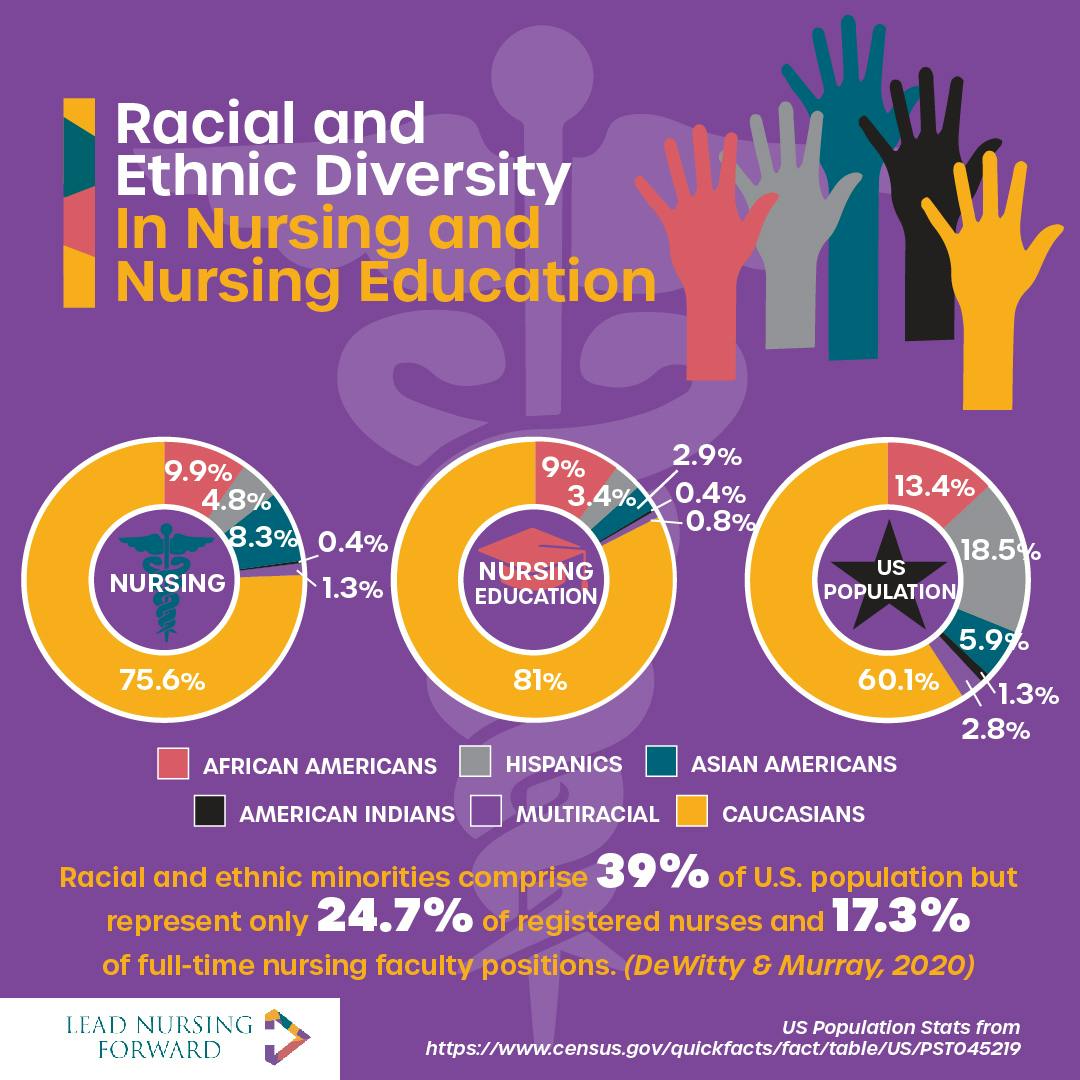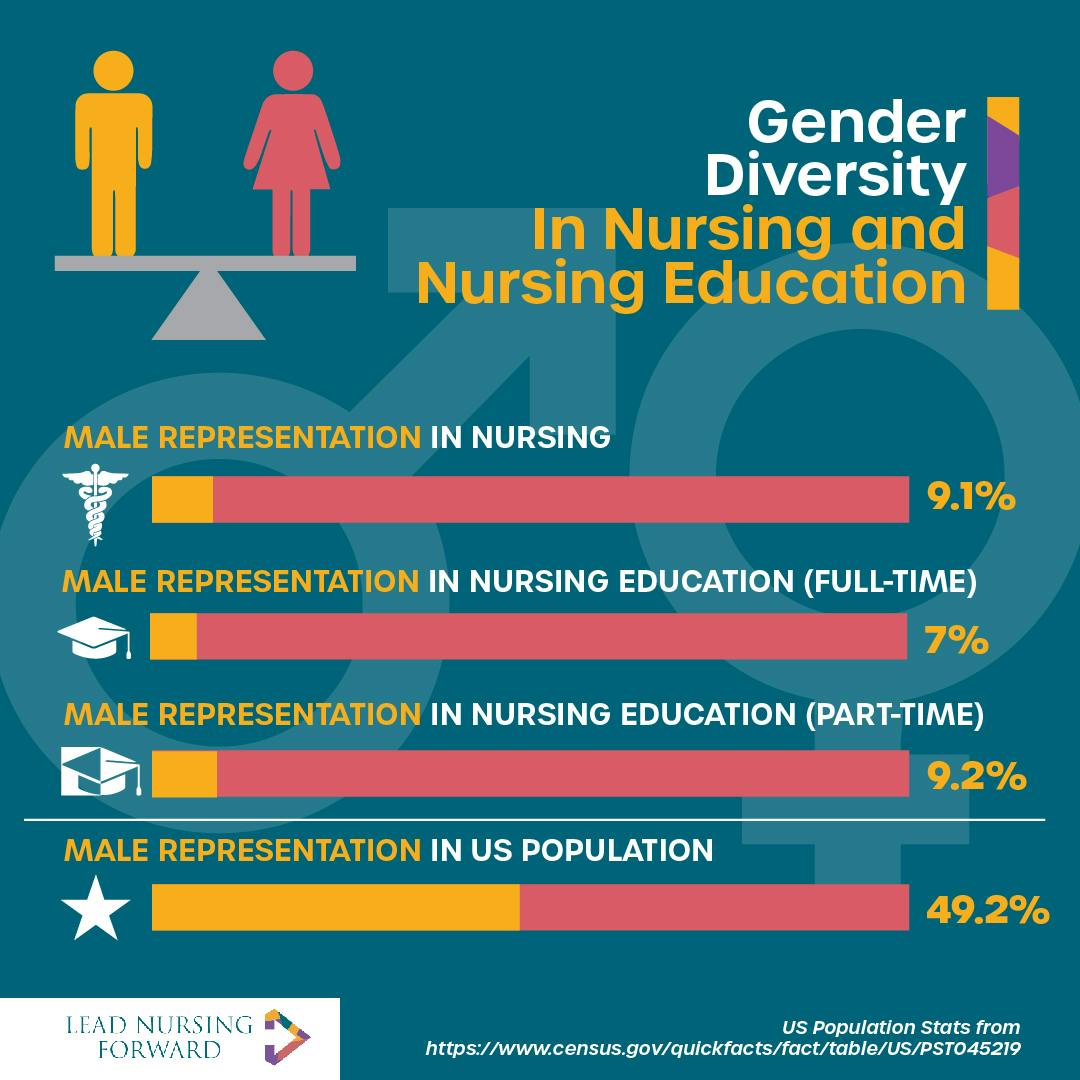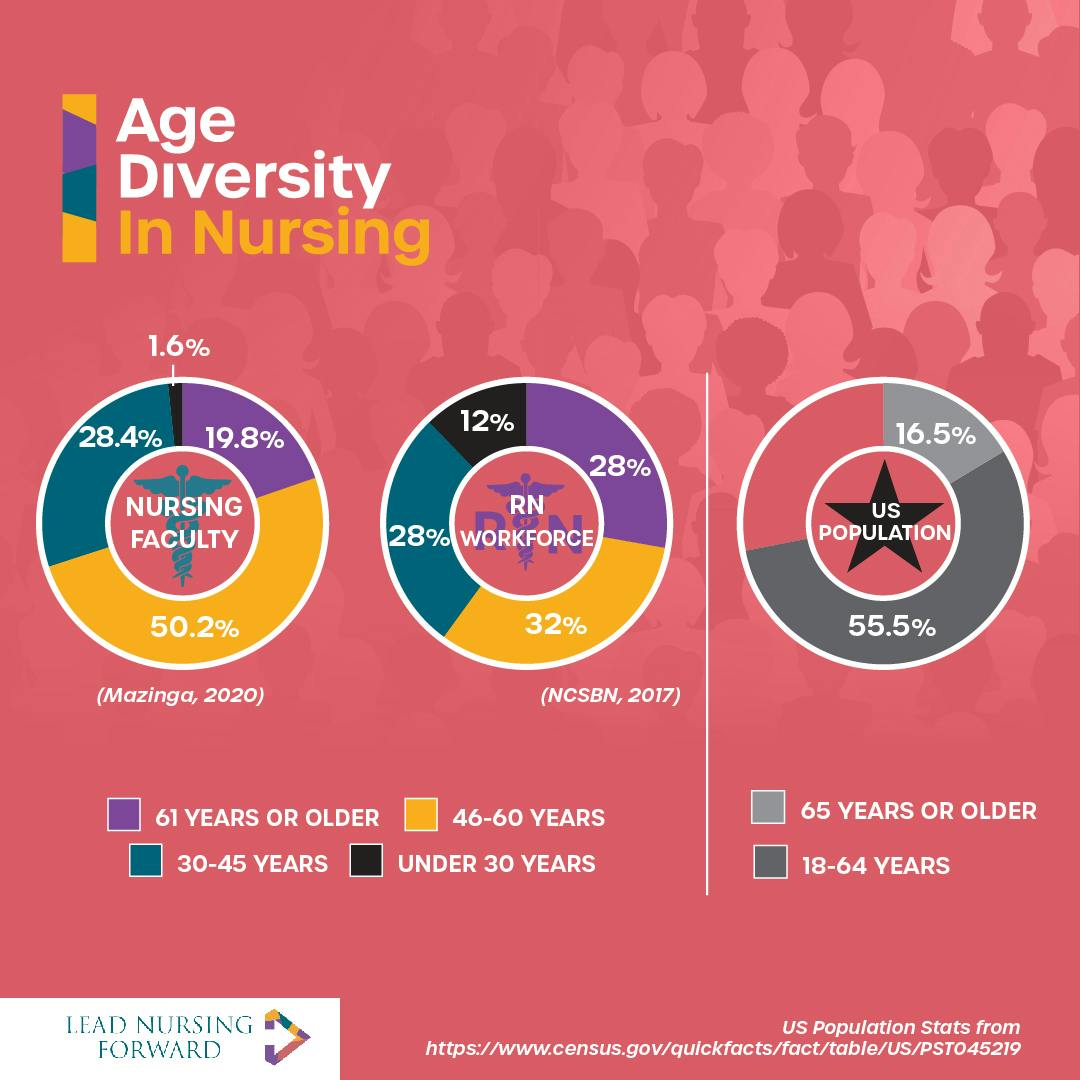
The Importance of Diversity
A strong, diverse nursing workforce is needed to improve the health of our nation and the global community and eliminate health disparities everywhere
What is diversity?
- The practice or quality of including or involving people from a range of backgrounds
- It recognizes individual differences in race, ethnicity, gender, sexual orientation and gender identity, socio-economic status, age, physical abilities, religious beliefs, political beliefs, or other attributes
Why is diversity in nursing important?
- “It encourages self-awareness and respect for all persons, embracing and celebrating the richness of each individual.
- It encompasses organizational, institutional, and system-wide behaviors in nursing, nursing education, and health care”, (NLN, 2016, p. 2).
With greater diversity comes:
- broader perspectives
- more ideas
- better problem-solving
Working in diverse teams where people can learn from each other, opens dialogue and promotes creativity. Explore further.
Why is diversity in nursing education important?
It’s about the people: To meet the nation’s healthcare needs, address health inequities in historically underserved communities, and improve access to care, we need students, faculty, staff, and academic leaders who reflect the people we serve (AACN, 2020).
It’s about the environment: We need learning environments that embrace diversity and inclusion so that diverse faculty, staff, and students can flourish.
It’s about the subject matter/content: Curricula that respond to the health needs of all populations are essential so that students learn to care for diverse populations in culturally responsive ways (NLN, 2016).
Efforts to Improve Diversity in Nursing and Nursing Education
- Developing nursing pipeline programs to increase recruitment, retention, and graduation of students from underrepresented groups.
These programs provide academic and financial support along with mentorship to promote student success (NLN, 2016). - Creating a nursing workforce of clinicians, educators, scholars, and leaders who will provide high quality, culturally appropriate and congruent health care.
Read More - Intentional curricular change to foster advocacy and an appreciation of nursing’s moral responsibility to health equity and social justice.
Read More - Implementing evidence-based recruitment practices and admissions redesign aimed at increasing the number of students from underrepresented groups into the nursing profession.
Read More - Providing federal grants for education in order to address the lack of mental health and substance abuse nurse professionals providing culturally competent care to an increasingly diverse population through a Minority Fellowship Program. Read More
- Filming of 10 Ways Academic Nursing is Addressing Structural Racism:



